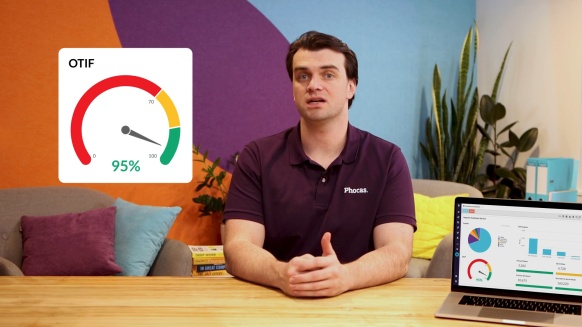How to create a data driven culture in your organization

Data driven cultures are organizations that recognize the importance of data driven decision making processes, so much that make sure that everyone in their company has access to key financial and operational data, and can use it on a daily basis to drive better decisions and improve business outcomes.
According to research of 969 c-suite leaders, companies with higher data literacy and a data-driven approach to business strategy have a definite competitive edge over those companies that continue to operate in data silos. The study also found data driven cultures improved process cycles twice as effectively as non-data driven ones, and they also managed to decrease in operations expenses.
Why is a data driven culture important?
Many of today’s business success stories leverage data science, from machine learning & AI advances to understanding customer experience or undertaking new product development. These are companies that have data driven cultures and enjoy easy access to their data, leaving them relying on intuition less often.
Implementing a data-driven culture is about replacing gut feeling with data-driven decision making, using data insights from management reports to improve operational efficiency, or more advanced discovery such as correlating customer behaviour to activity on your e-commerce site.
The main aim is to empower all team members to leverage data to enhance their daily work and to reach their full potential by making informed decisions easier, customer conversations more useful and strategic.
To become a data-driven organization, start by taking these steps:
1. Start at the top
Data-driven culture starts at the top. Companies with strong data-driven cultures tend to have managers who set an expectation that a data-driven mindset must be used all the time, across the entire organization. They lead through example with board reports that refer to data-driven decisions and filter that through all levels of the organization. Executive level buy-in also supports the change management required to undertake the digital transformation needed to build a true data-driven organizational culture.
2. Improve data governance
A common struggle, for companies of all sizes, is data governance. New data analytics initiatives are often implemented without consideration of how easy data sharing is between teams and software. One functional area may prefer the features of one data analysis software, while another team opts for a different legacy product. A lack of organization leads to confusion and, subsequently, poor data quality and even worse data access. Data-driven organizations benefit from structured data collection and data sharing method built into data analysis software, which build the foundation for a strong data culture.
3. Standardize data processes
Your team may be comfortable conducting business one way; another team may prefer different methods. While each team’s workflows may work fine individually, enough differences exist to cause hiccups when forced to merge. Data-driven organizations work to automate and optimize their data management, which let data flow with routine and predictability.
Automated data collection from ERP, CRM and warehouse management systems into a consolidated system, and user level permissions ensure that the right people see the right data sets that are guaranteed to be up-to-date.
4. Measure with variety
Rather than measuring the same things each year, it pays to mix it up. Organizations that are data-driven are in an advantageous position – having data rich dashboards and visualizations at their fingertips - because they can customise the mix of metrics and KPIs they use to drive more informed decision making. The variety of this approach encourages better use of data and a richer set of predictive tools.
5. Invest in the right analytics tools
Data-driven organizations appreciate the value of a business intelligence (BI) solution that delivers easy to use reporting and dashboards. BI and FP&A tools like Phocas provide real-time value while being scalable, secure, and available on-demand.
With Phocas, you have an easy-to-use but powerful analytical capability in which users can access layers of data in seconds. Phocas is a comprehensive data analysis solution that helps organizations to begin their data-driven culture transformation.

Empowering businesses with intuitive data analytics, driving informed decisions for growth and profitability. We make people feel good about data.

Essential KPIs every distribution company executive should measure
For mid-market leaders running a wholesale distribution business, data and business intelligence technology are crucial for monitoring financial and operational performance. However, the real value lies in how your team uses the data insights to influence decision-making.
Read more
5 key FP&A trends for 2025
The role of the CFO is evolving rapidly, extending beyond traditional financial stewardship to encompass business partnering, operational oversight and technological innovation. A 2024 Sage study of over 1,200 global finance leaders reinforces this transformation:
Read more
The wide appeal of self-service reporting
Your own data is a critical asset that can drive business growth, improve decision-making, and boost customer satisfaction. Among the various tools available, self-service reporting solves one of the most significant barriers to real-time data analysis—accessibility.
Read more
How to prepare professional board reports
Preparing effective board reports cannot be underestimated. They’re not only essential for communicating financial performance and operational progress, but are also an all-important part of strategic and intelligent decision-making.
Read more
Find out how our platform gives you the visibility you need to get more done.
Get your demo today
